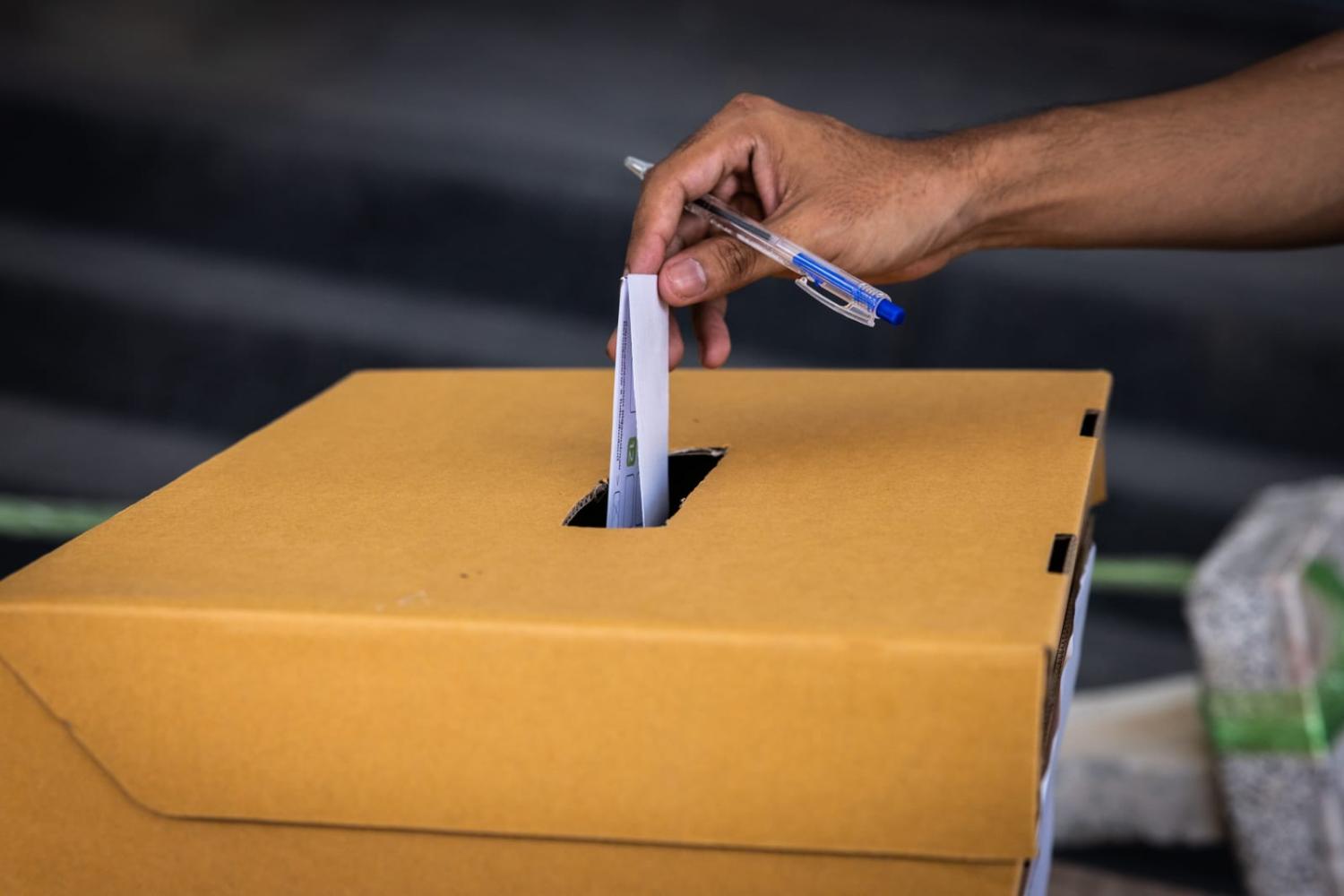The election won’t be free and fair but it could be highly consequential for the country and the region

While the Thai contest is stacked in favour of conservative elites, there is a genuine element of contestability in this poll
(Lauren DeCicca/Getty Images)
Follow @SusannahCPatton
Southeast Asia’s autocrats still want electoral legitimacy: it’s a paradox that’s particularly clear in the intentions of Myanmar’s junta and Cambodia’s strongman ruler Hun Sen to hold elections. Yet Thailand’s election, to be held on 14 May, is different to these. While the contest is stacked in favour of conservative elites, there is a genuine element of contestability in this poll.
Thailand’s current government, a military-backed conservative coalition, has ruled since the last election in 2019, with Prime Minister Prayut Chan-o-cha at the helm. Remarkably, Prayut has now ruled Thailand for nearly a decade since he led a military coup against the Yingluck Shinawatra government in May 2014. A military-drafted constitution, which gave a large unelected senate a say in appointing the prime minister, helped him remain in power after the 2019 election, though his party was not the most popular.
Southeast Asia’s autocrats still want electoral legitimacy: it’s a paradox that’s particularly clear in the intentions of Myanmar’s junta and Cambodia’s strongman ruler Hun Sen to hold elections. Yet Thailand’s election, to be held on 14 May, is different to these. While the contest is stacked in favour of conservative elites, there is a genuine element of contestability in this poll.
Thailand’s current government, a military-backed conservative coalition, has ruled since the last election in 2019, with Prime Minister Prayut Chan-o-cha at the helm. Remarkably, Prayut has now ruled Thailand for nearly a decade since he led a military coup against the Yingluck Shinawatra government in May 2014. A military-drafted constitution, which gave a large unelected senate a say in appointing the prime minister, helped him remain in power after the 2019 election, though his party was not the most popular.
The key factor determining post-election scenarios will be how well former prime minister Thaksin Shinawatra’s Pheu Thai party performs.
Despite predictions in 2019 that the conservative government would be unstable, it has proved surprisingly resilient, surviving the Covid-19 pandemic, widespread youth protests in 2020, factional infighting and even a legal challenge, during which Prayut briefly stepped down as prime minister. It’s impossible, however, to discern any notable policies of record from this government. Thailand’s economy underperformed compared to regional peers and long-term challenges, such as an ageing society and an outmoded education system, have gone unaddressed.
Election scenarios
The key factor determining post-election scenarios will be how well former prime minister Thaksin Shinawatra’s Pheu Thai party performs. Thaksin has lived in self-imposed exile since 2008, but remains the driving force behind the party, now ably led by his daughter Paetongtarn. Paetongtarn has said her goal is to capture 310 seats: such a landslide would allow Pheu Thai to take the prime ministership and dominate a coalition with smaller parties.
Even so, Pheu Thai will likely fall short of this high bar, in part because the progressive Move Forward party will split the anti-establishment vote. Move Forward’s predecessor party, Future Forward, won 80 seats in 2019, but may perform less well due to subsequent electoral changes, despite polling strongly. Move Forward has the most distinctive and ambitious policy agenda of any party in the election, seeking to reform Thailand’s constitution, end military conscription and reform the lese-majeste law.
Most analysts point to a coalition government involving elements from both Pheu Thai and conservative and parties as the most likely electoral outcome. General Prawit Wongsuwan, Prayut’s long-time deputy, is positioning himself as the candidate of political reconciliation and openly mooting the idea of a coalition with Pheu Thai. A tie-up between opposing political forces may seem odd, but in the pragmatic world of Thai politics, any deal is possible.
Pheu Thai is cagy about these prospects, fearful that talk of allying with conservative parties could damage its electoral prospects. And Thaksin probably still has majoritarian instincts. While he may be open to a pragmatic deal, he has proved incautious in the past, and would likely seize on any window of opportunity to put Pheu Thai back in the driving seat, even if doing so risked political conflict.

Pheu Thai Party candidate Paetongtarn Shinawatra, youngest daughter of former prime minister Thaksin Shinawatra, with her newborn son Thasin last week during a media event at the Praram 9 hospital in Bangkok
(Manan Vatsyayana/AFP via Getty Images)
Post-election outlook
Thai politics over the past two decades has a cyclical quality: populist electoral success, leading to conservative backlash, leading to popular discontent and some political opening. Various periods of tension or protest over recent years have not emerged suddenly, but rather, built up as various political pathways forward were gradually exhausted. Big protest movements take time to build, and there is a sense of exhaustion and fatigue on both sides. All this weighs in favour of relative stability, at least in the short term.
But there are risks and uncertainties, especially if Pheu Thai does receive a decisive victory. Thaksin’s mooted return to Thailand could be one destabilising factor. He has said many times that he will return, but this is the first time he has signalled he would be open to going to jail. It’s not clear whether he’d really be willing to take that risk. A second destabiliser could come in May 2024 when the appointed Senate loses its prerogative to vote in selecting the prime minister. This would further shift the balance away from the country’s conservative forces.
On the more positive side, the election could be a plus for Thailand’s regional role, which has been sadly diminished over the past two decades. Leading Pheu Thai figure Srettha Thavisin has indicated that should the party take government it would look positively at the prospect of new free trade agreements (Thailand has not concluded any major liberalising agreement for almost 20 years). Progressive politicians have also criticised the current Thai government’s approach to Myanmar. While they are unlikely to challenge the close ties between the two countries’ military, they could push Thailand towards a more constructive position within ASEAN. This would help 2023 ASEAN Chair Indonesia gain much-needed momentum in its diplomacy on Myanmar.
No comments:
Post a Comment